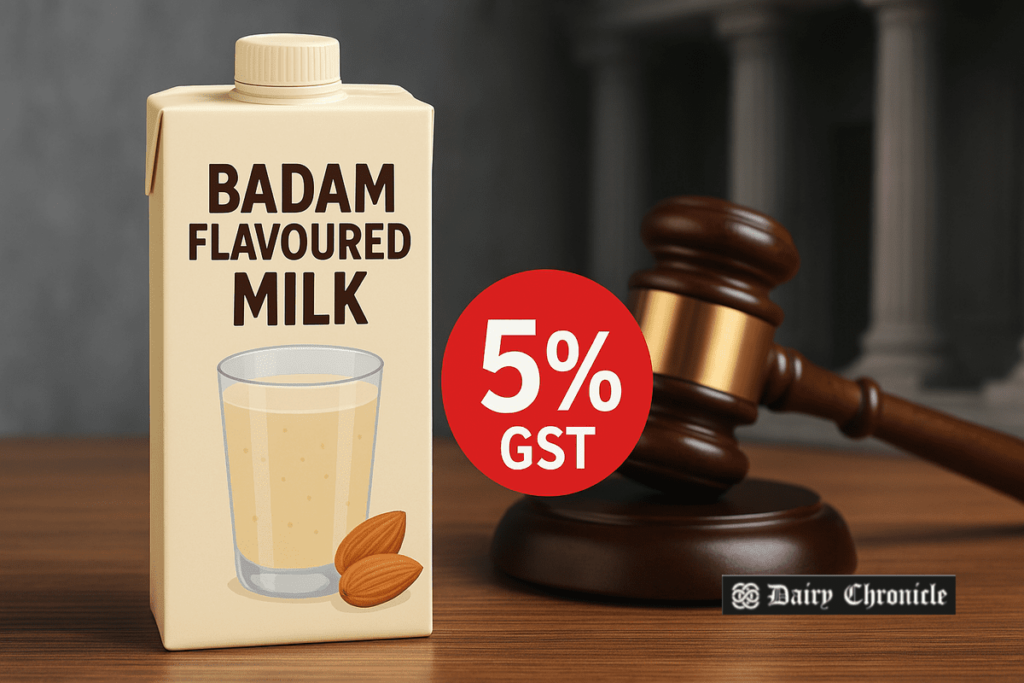The Supreme Court of India upheld the Andhra Pradesh High Court’s decision to apply a 5% GST rate to badam-flavoured milk, rejecting a Revenue Department appeal. The ruling clarifies the classification of flavoured milk under GST regulations, aligning with earlier judgments and providing relief to the dairy industry.
The Supreme Court of India has confirmed that badam-flavoured milk will attract a 5% Goods and Services Tax (GST), rejecting a petition filed by the Revenue Department. The petition contested the Andhra Pradesh High Court’s decision, which had previously categorized the product under HSN code 0402 9990, thereby subjecting it to a lower GST rate.
Sri Vijaya Visakha Milk Producers Company Ltd, the subject of the legal dispute, had argued that badam-flavoured milk should be treated as milk rather than a beverage. The Andhra Pradesh High Court ruled in their favor in December 2024, and the Supreme Court’s latest decision upholds this classification.
The Revenue Department maintained that adding flavor to milk transforms it into a beverage, making it liable for a 12% GST. However, both the Andhra Pradesh and Madras High Courts have disagreed, stating that flavoured milk still qualifies as milk under the GST framework.
The court emphasized that the presence of 0.5% badam flavouring does not alter the fundamental nature of the product, especially since other milk derivatives like skimmed milk powder, sweetened milk, and baby milk food are also included under Entry 0402. The ruling is consistent with the GST structure, which exempts fresh milk and loose dairy products, but imposes a 5% GST on pre-packaged or processed milk products, including UHT and now flavoured milk.
Industry experts see this verdict as a win for the dairy sector. It removes ambiguity around GST classification and could influence future GST Council decisions on other milk-based beverages. Companies are now urged to ensure correct classification to benefit from the lower tax rate.



